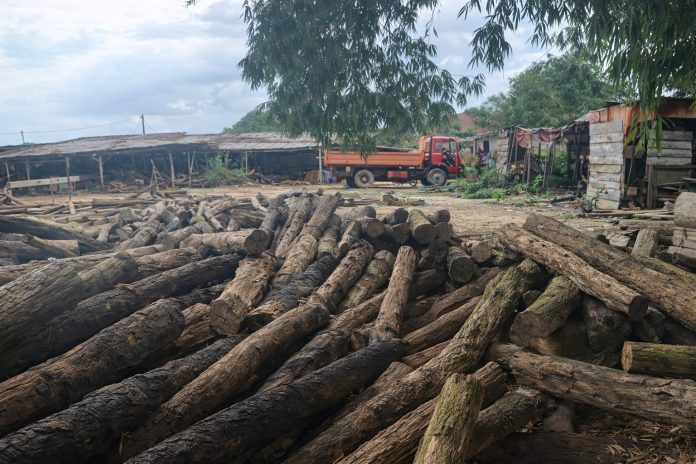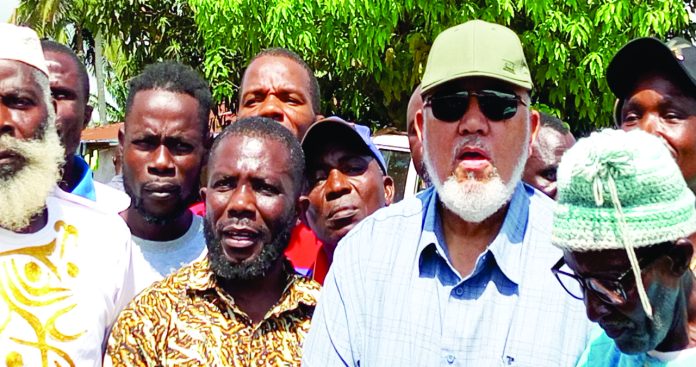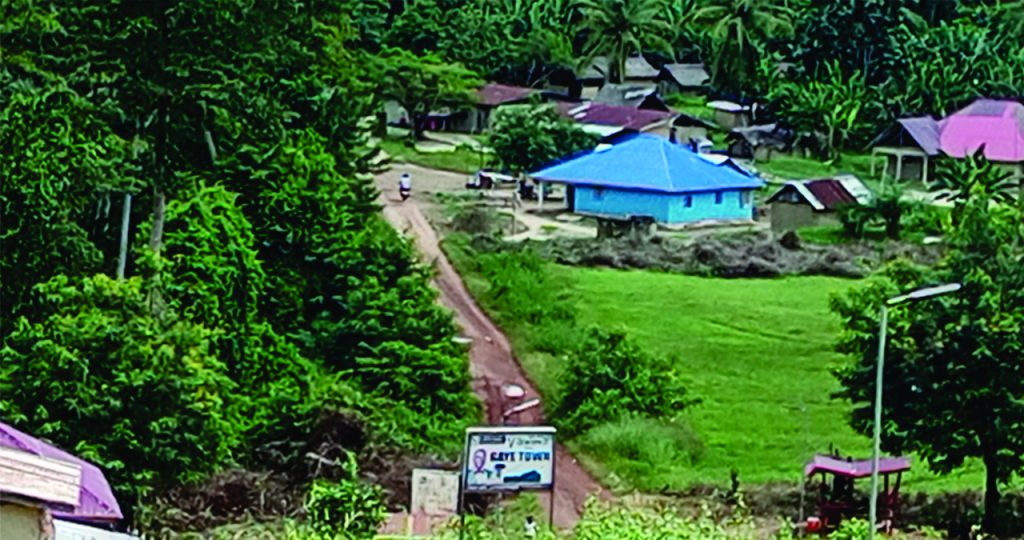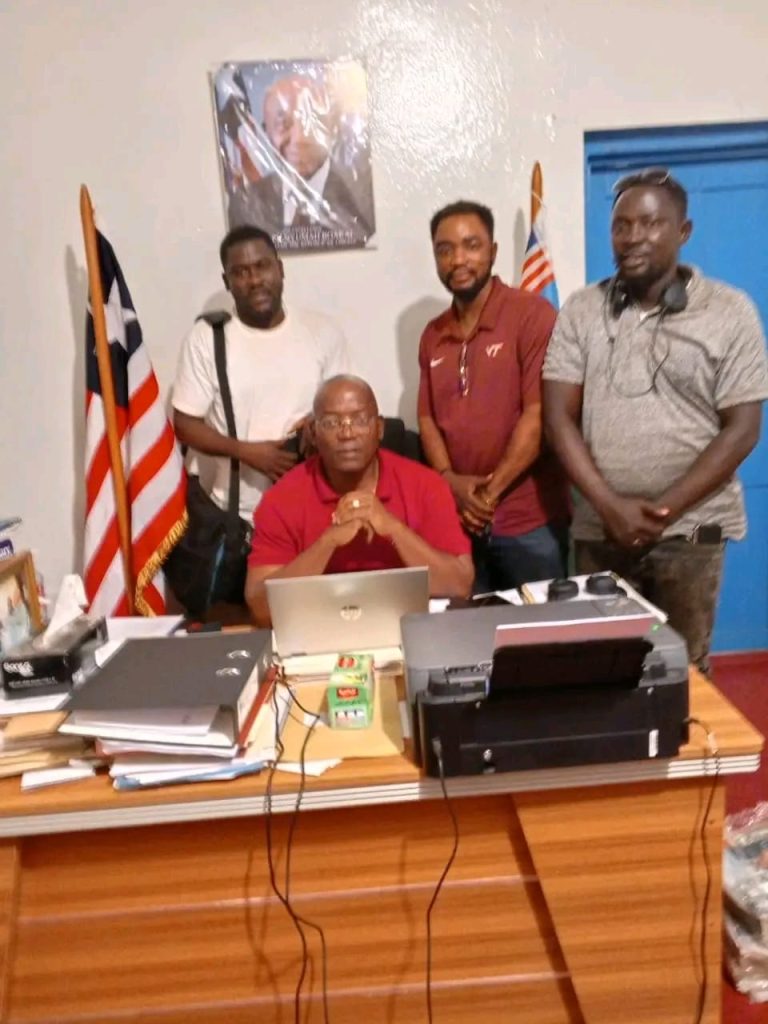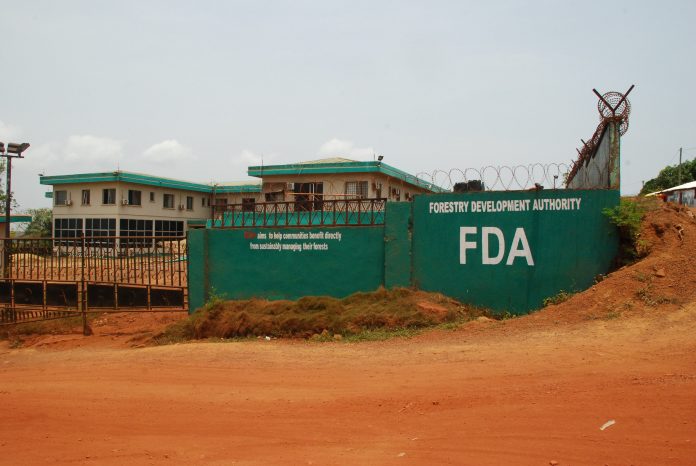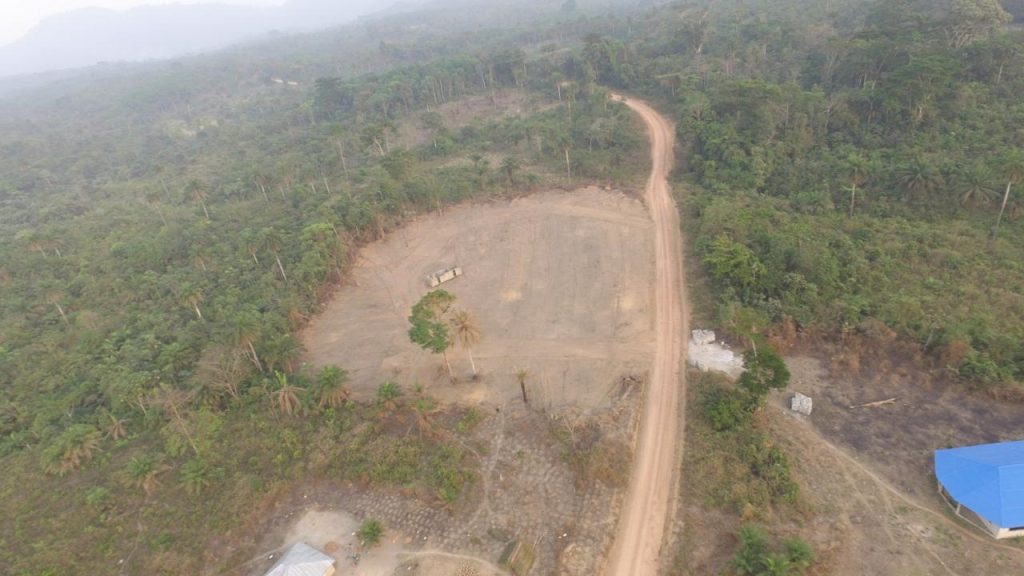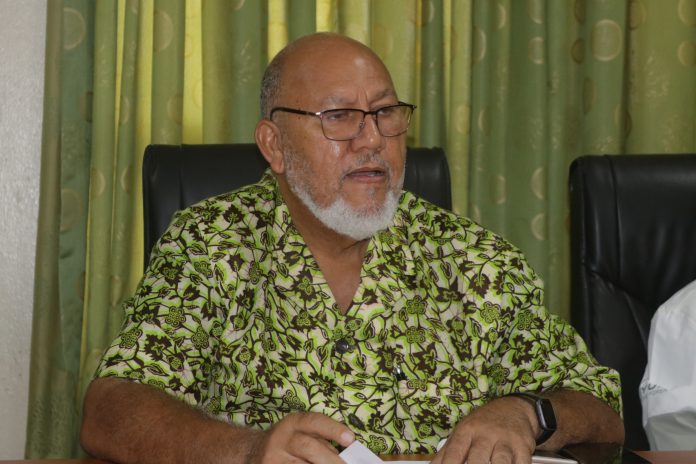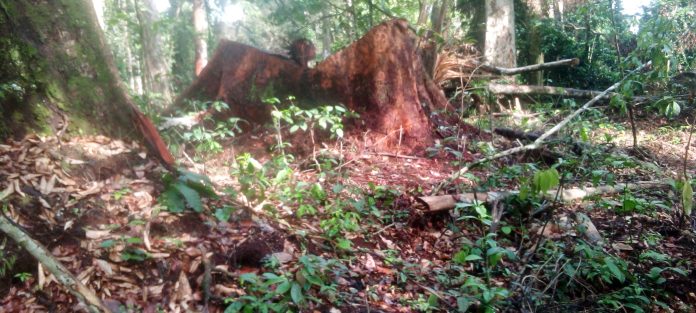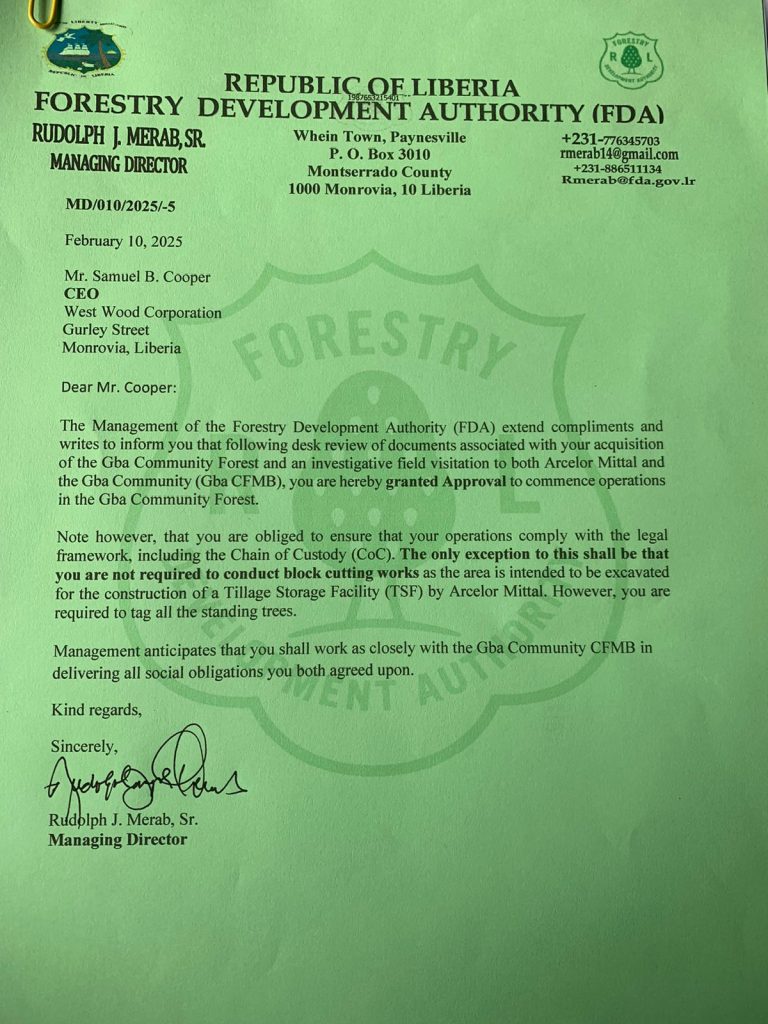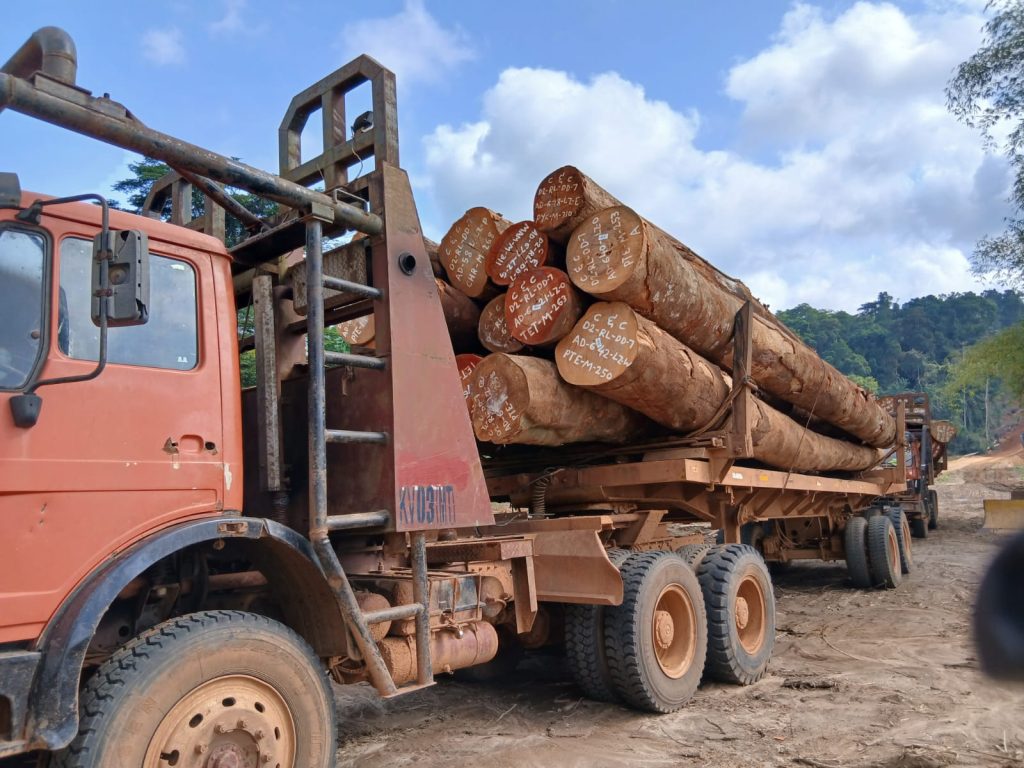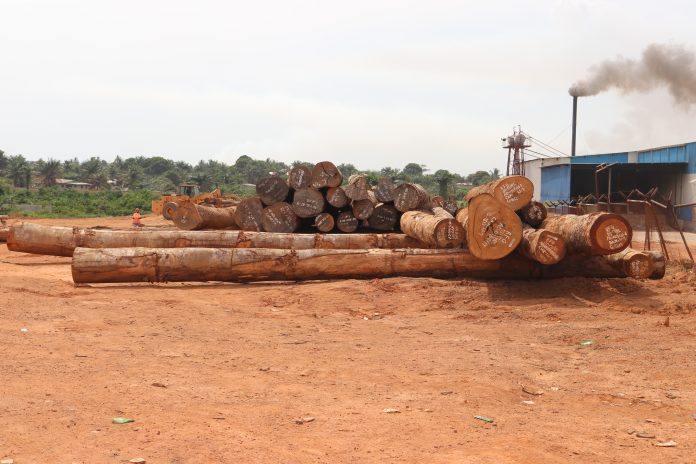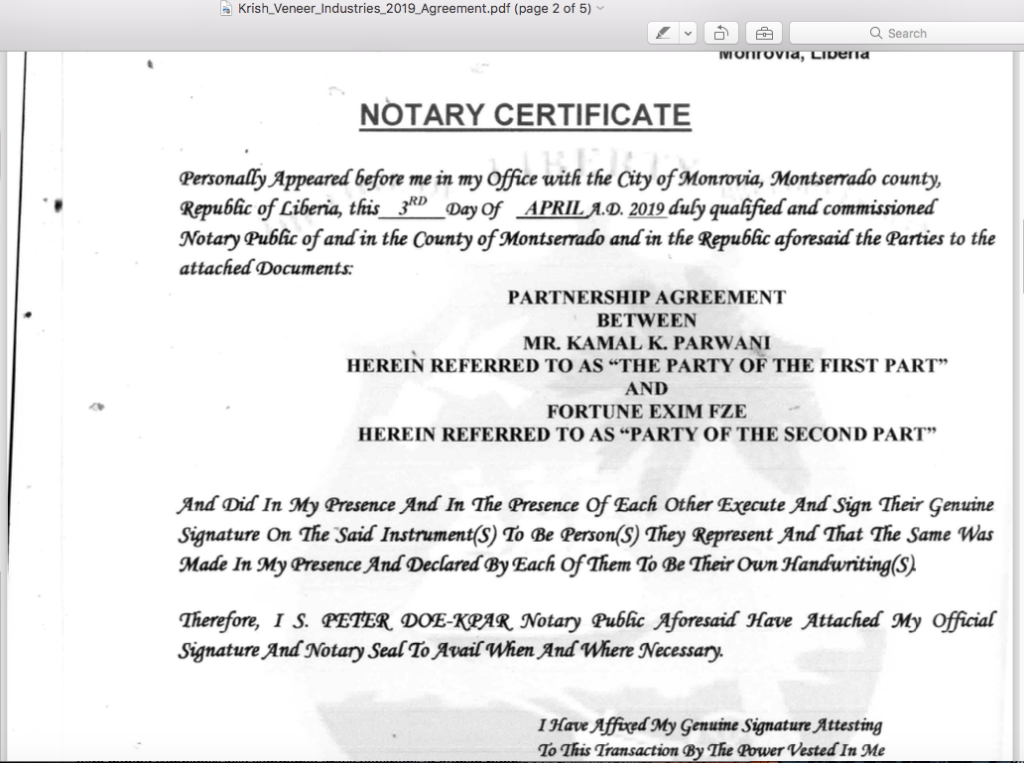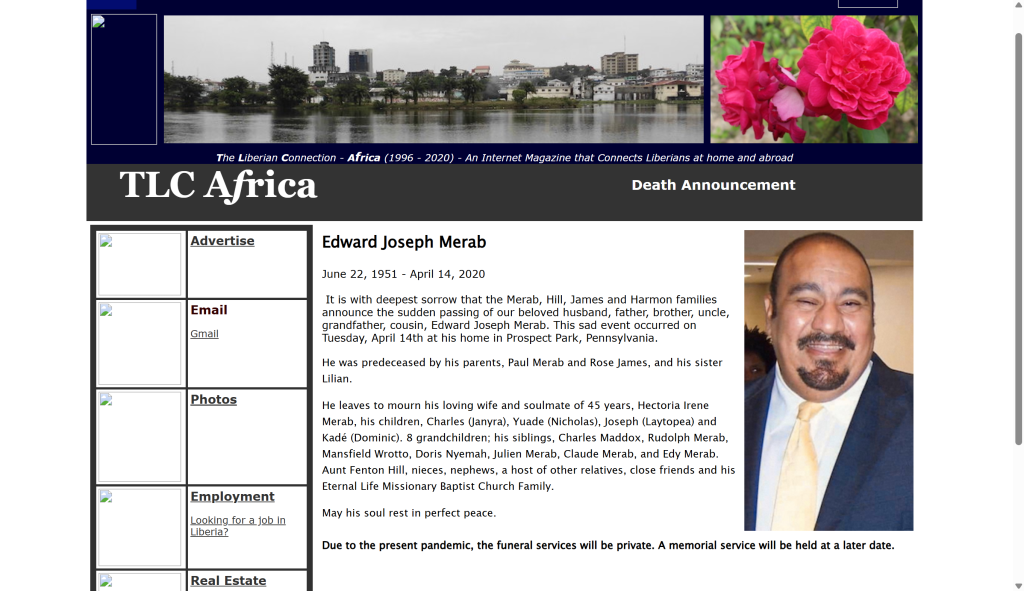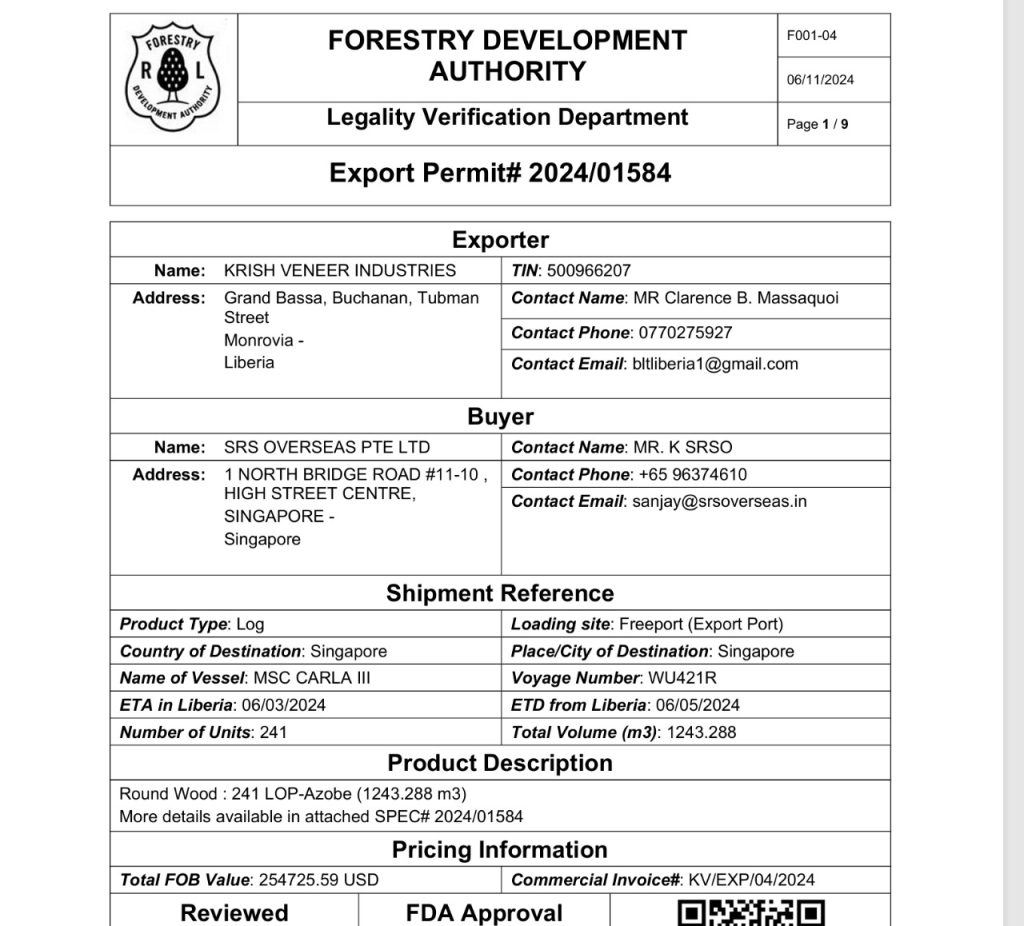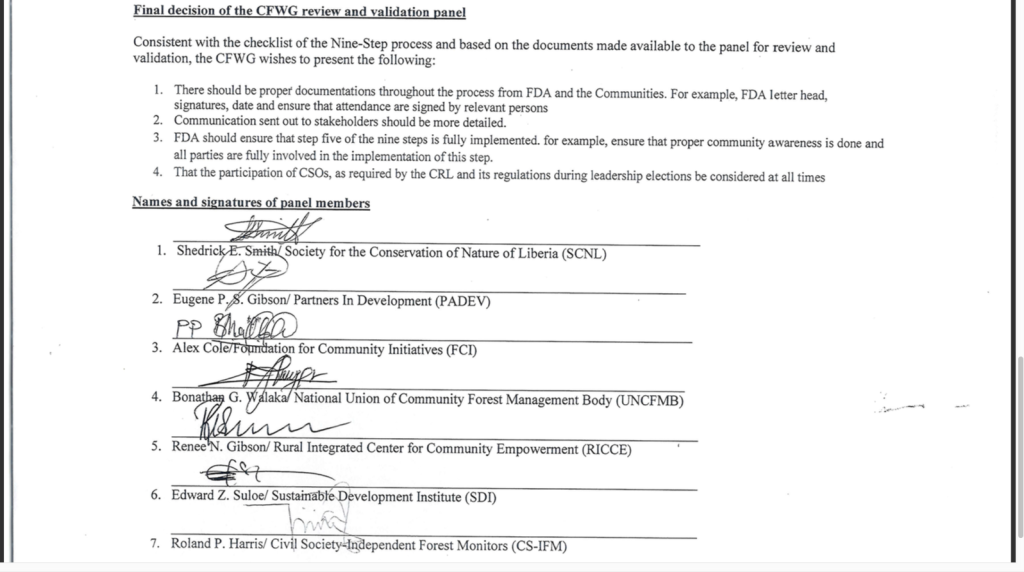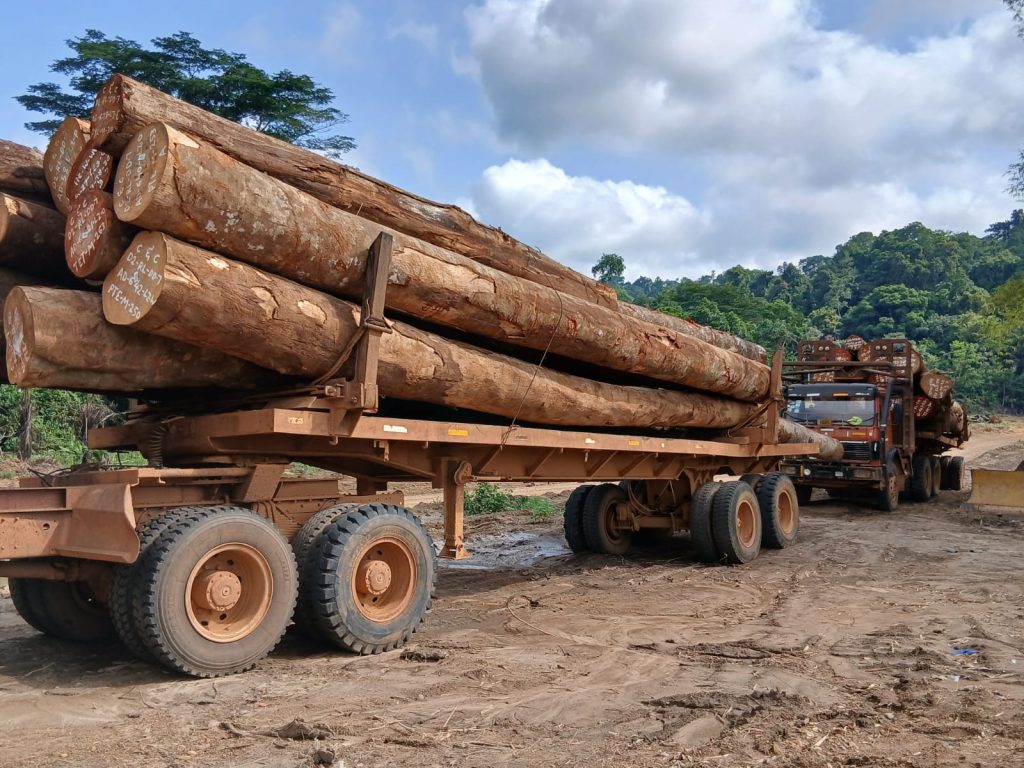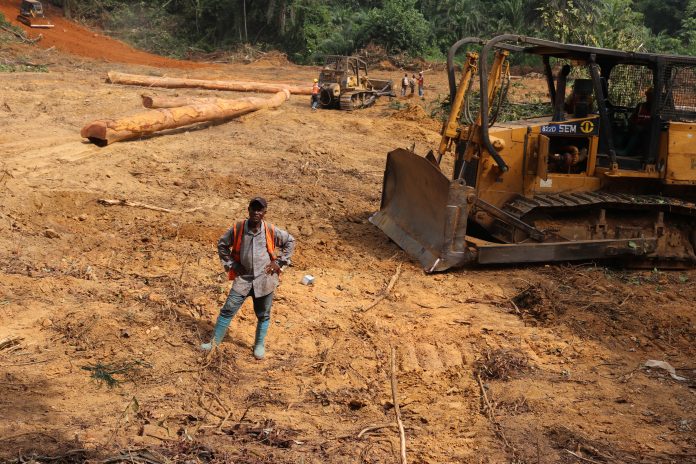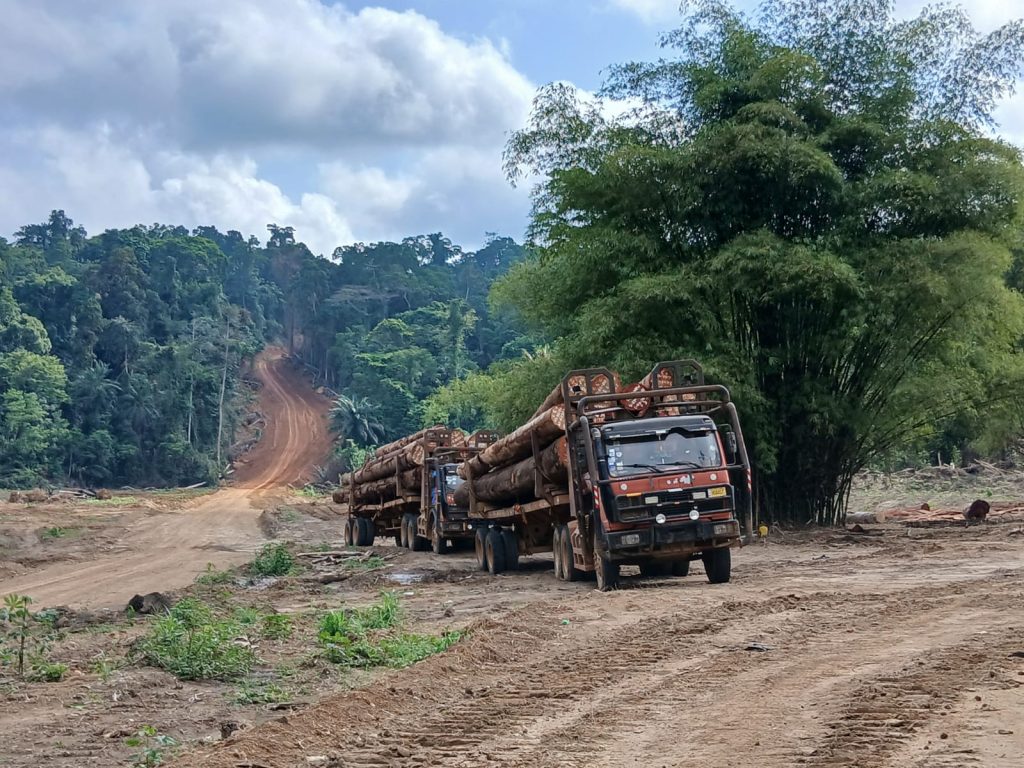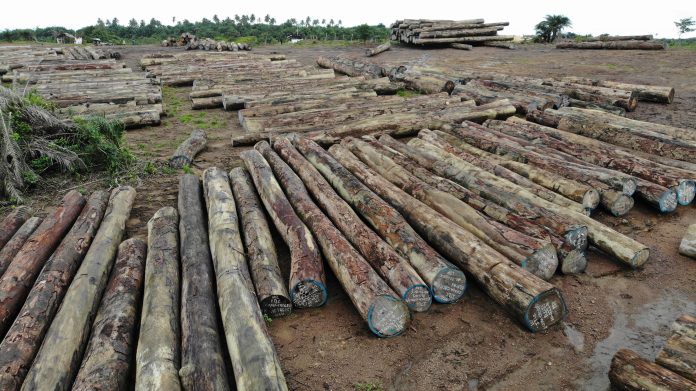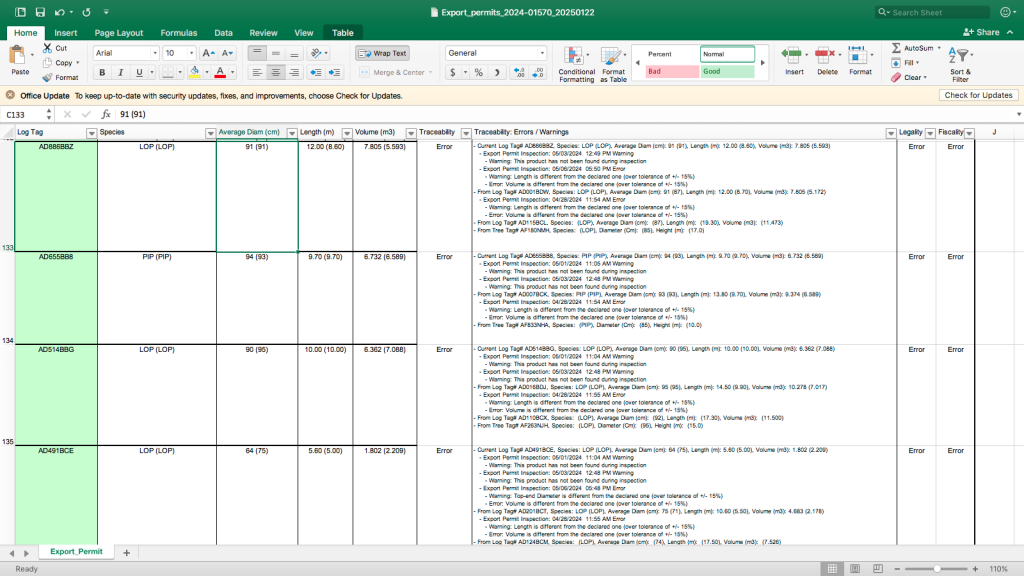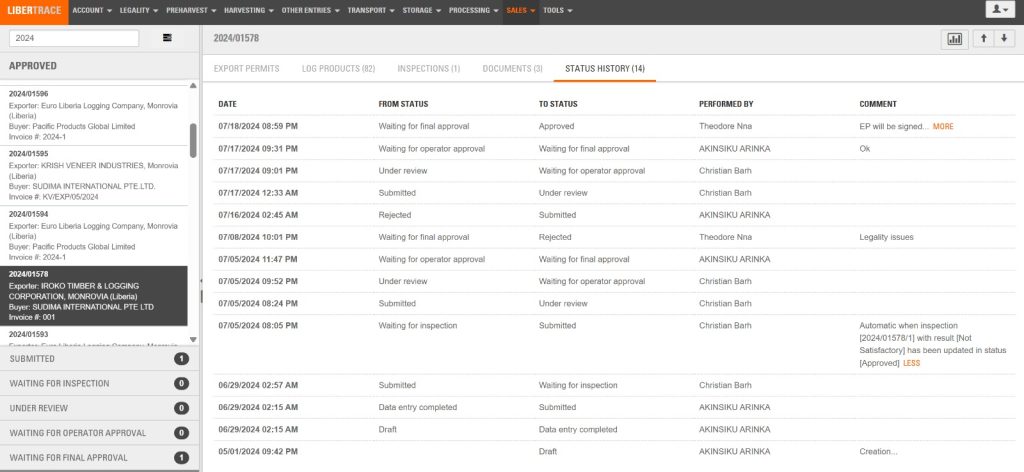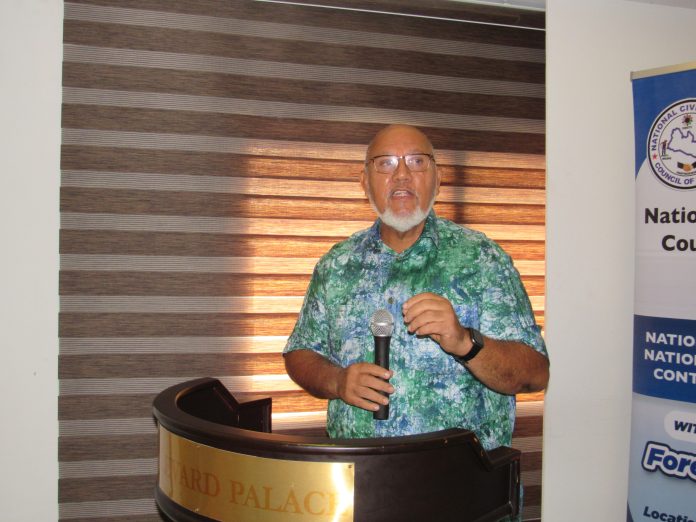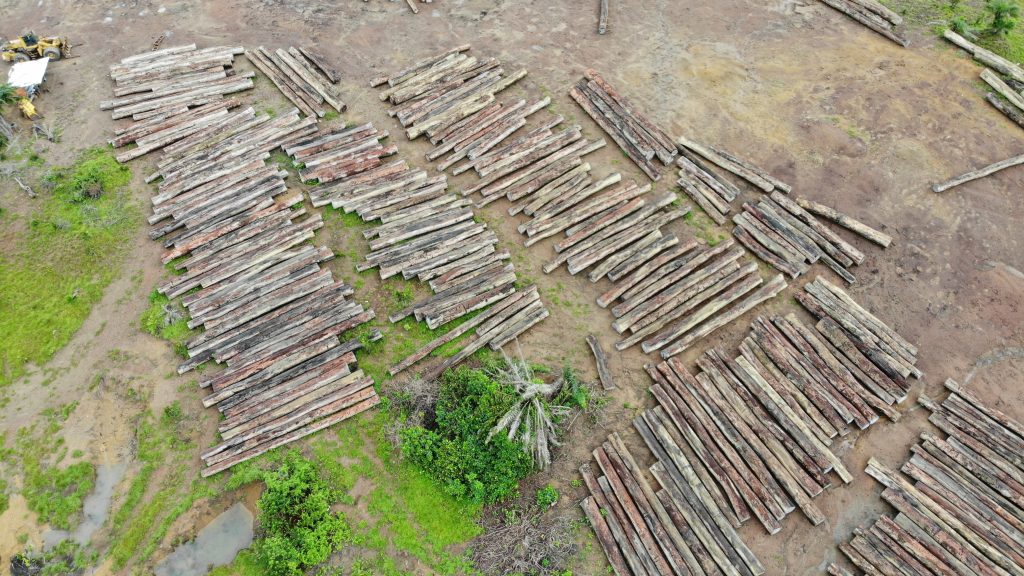Top: Teak logs that the Forestry Development Authority illegally confiscated ended up at Libfor Forest Corporation, a sawmill involved in alleged illegal timber trafficking. Photo credit: Anonymous
By Esau J. Farr
- In 2024, the Forestry Development Authority arrested two truckloads of expensive teak logs in Ganta and Salayea that came from Kpaytuo, Nimba County.
- The FDA announced it filed a lawsuit against the owner of the logs, providing no further information.
- But a DayLight investigation established that the regulator did not obtain a court warrant to seize or auction the logs, as the law requires.
- Instead, documents, recordings and interviews paint an intriguing picture of alleged illegal transactions.
- The evidence shows that some of the logs ended up in a notorious sawmill, which the FDA sued for alleged timber smuggling.
KPAYTUO, Nimba County – Late 2024, Rose Yancy Adikwu , the manager of Rosemart Inc., a logging company, set off to transport a truckload of teak logs, an expensive and sought-after wood. Little did she know that rangers with the Forestry Development Authority (FDA) at the Salala checkpoint in Bong County would seize the logs.
Before that incident, rangers at the Ganta checkpoint arrested 200 teaks from men linked to Rosemart. That consignment and the one from the Salala checkpoint were taken to the FDA headquarters in Whein Town, Paynesville City. In all, the FDA said it seized about 706 timbers valued at US$20,000.
“FDA’s decision to confiscate the woods is based on the owners of the trucks or companies’ inability to obtain proper documentation for said transactions,” the FDA said in a Facebook post. It said it was processing Rosemart and Amengo to court for violating the forestry law and evading government revenue.
But a yearlong DayLight investigation found that the FDA bypassed the legal process to seize and auction timber. The evidence suggests that the regulator clandestinely transacted with companies that had already traded with Rosemart for the same consignments.
The Eighth Judicial Circuit Court in Nimba, which hears such cases, confirmed it did not issue the FDA any warrant to seize or auction the logs.
In an interview with reporters last December, FDA Managing Director Rudolph Merab admitted to not following the law.
“There was no warrant when I seized [the logs],” Merab said. “I will go to court to get the court’s authorization to sell it.
“I don’t need a warrant to catch a rogue. If you enter my house and I catch you there, you are rogue,” Merab added.
The facts contradict Merab’s comments. The Regulation on Confiscated Logs, Timber and Timber Products provides that the FDA must obtain a warrant from the circuit court where the logs were harvested or stored before the logs are confiscated. The 2017 regulation complements the 1972 Criminal Procedure Law regarding seizure of contrabands and stolen or embezzled properties.
‘Lots of money’
Except for the initial arrests and seizures, which were published, the FDA provided no updates on the Ganta and Salala logs in the months that followed. The FDA did not publish any more details as required by law, and ignored detailed questions emailed and hand-delivered six months ago.
So, what happened to the logs in question? Were they sold off? If so, where and when did the sale occur? And who bought them? How much did the individual or company pay the government? How much did Kpaytuo receive?
Documents and interviews The DayLight conducted likely provide the answers to these questions.
In one interview, Adikwu said that Merab told her he had seized the logs because her company was illegally operating. The DayLight obtained a video recording in which Merab corroborates Adikwu’s story. In the video, Merab can be heard saying, “Rose came to my office, and I told her what to do.”
Adikwu alleged that the FDA sold the Salala checkpoint logs for US$1,860 to Bana Liberia, a little-known company. Weeks later, the regulator announced the seizures. There were over 740 logs, not 600 as the FDA announced. It had paid Rosemart US$7,500 for the logs via a Liberia-based executive, a receipt of that transaction, seen by The DayLight, shows.
Interestingly, Bana Liberia stored the logs at Libfor, a sawmill in Caldwell embroiled in at least one lawsuit with the FDA for alleged timber smuggling. Pictures of teaks that The DayLight obtained matched the wood from Kpaytuo, and the environment in the picture fitted Libfor’s yard. A DayLight investigation last January had found that Libfor smuggled timber in and out of Liberia. Trade data shows that it smuggled timber at least 51 times since June 2022.
“Amadu Kabbah, who bought the woods from me, said he took part in the bidding process and won the bid with US$1,800,” said Adikwu. “So, he bought the woods for the second time from the FDA.”
Kabbah confirmed Adikwu’s claim that Bana Liberia bought the wood from the FDA. He revealed that Bana Liberia paid “lots of money to the FDA,” and had still not exported the logs.
FDA’s records suggest it handed the Ganta logs to Fahmah Construction Company, established in 2023. There is no record of that sale, but the FDA reports Fahmah paid US$50 for tags used to track logs.
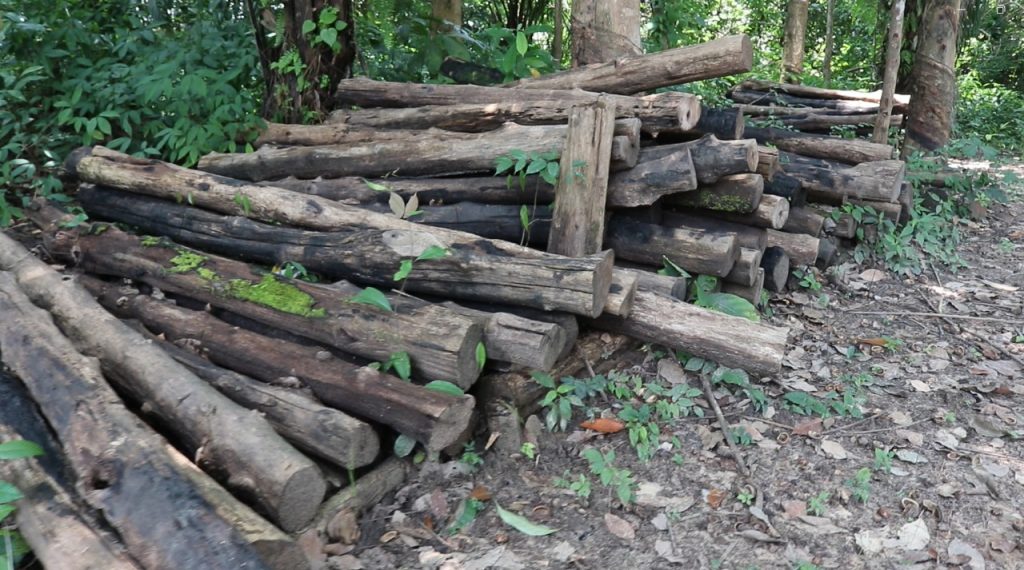
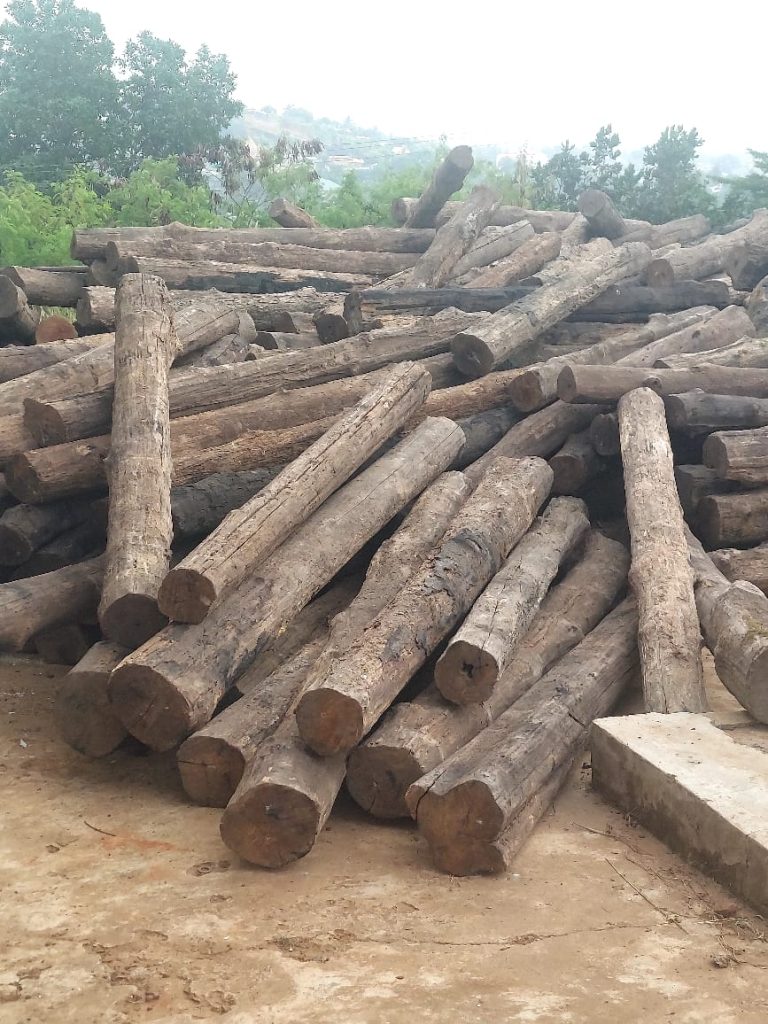
Official records show that Fahmah was registered in LiberTrace—FDA’s log-tracking system—in December 2024, the same month the FDA seized the logs in Ganta. Fahmah had purchased the 143 teak logs from Rosemart for US$3,000 or US$3,500, according to a receipt The DayLight obtained.
Screenshots of WhatsApp chats provide a glimpse into the Rosemart-Fahmah deal. In a WhatsApp chat, a Fahmah representative engaged Rosemart for a deal.
“If you can cut two containers, please let us know. The minimum circumference is 80 centimeters and the minimum length is 2.4 meters,” the representative wrote.
Adikwu replied, “Yes, I have.” It was two days after that conversation when Fahmah was stopped at the Ganta checkpoint.
‘The king of woods’
Last August, Merab visited Kpaytuo to negotiate with townspeople for the remaining teaks there. Referred to as “the king of woods,” teak is used for furniture, outdoor construction and shipbuilding. A cubic meter of teak sells between US$212 and US$805, according to the International Tropical Timber Organization, which sets global prices for wood.
The Kpaytuo teak plantation was established before the First and Second Liberian Civil Wars as part of an afforestation initiative. However, during the conflicts and the decades that followed, illicit occupants destroyed the plantation.
In 2015, Rosemart acquired the right to harvest a prewar teak plantation in Kpaytuo, spanning three FDA administrations. Two years later, Rosemart signed an MoU with townspeople and began exploiting the remnants of the plantation, ravaged by the Liberian civil wars.
Since then, the company has shipped teak logs on several occasions, with the FDA’s approval. One of its last-known shipments occurred in 2020. A 2022 DayLight investigation found that those exports occurred outside the legal system despite the FDA approving them.
Now, while in Kpaytuo, townspeople reminded Merab about their MoU with Rosemart and the company’s legal status, but he dismissed it. The FDA boss does not recognize Rosemart’s legality.
In a video recording of their meeting, Merab can be heard calling Adikwu a “rogue,” threatening to jail anyone who worked with her.
A townsman can be heard asking Merab, “‘Why don’t you take Rose [Adikwu] to court?’”
Merab then replies, “No. I won’t take her to court. She will take me to court.”
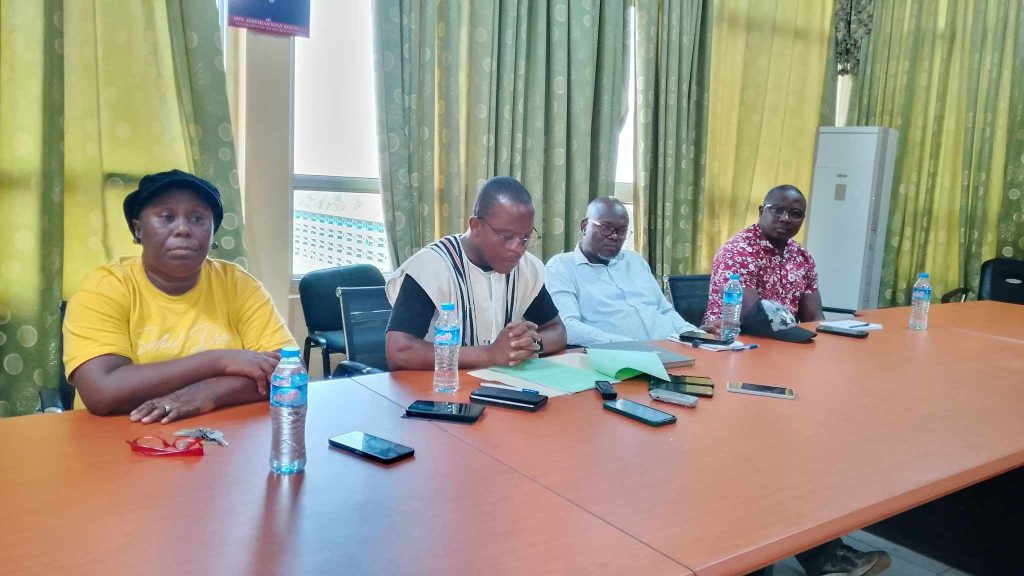
Merab’s comments in the video contradicted the FDA’s initial comments during its press conference. The FDA had claimed that it was “awaiting further court proceedings” to confiscate the logs.
In the end, the FDA paid Kpaytuo L$40,000 for each consignment, twice the amount Rosemart was paying, according to Socrates Kpeah, Kpaytuo’s Commissioner.
Kpeah pitied Rosemart but said Kpaytuo could not fight the FDA.
“The FDA is a big arm. The FDA is the government,” he said, as rangers supervised the transfer of teak logs from the bush to the road. “If the government can come to say, ‘Rosemart is no longer here,’ what power do we have to stop it?”
The FDA published no details of the tasks it removed from Kpaytuo. Townsmen, who helped transfer the wood, however, said they counted 738 logs. Francis Wile, a Rosemart representative, corroborated that information.
The FDA had contacted Oyaleke Ademola, a Nigerian businessman, who had pulled out of the deal upon learning of the logs’ history, according to Adikwu. The Nigerian did not respond to queries for comments on the matter.
This story was a Community of Forest and Environmental Journalists (CoFEJ) production.

